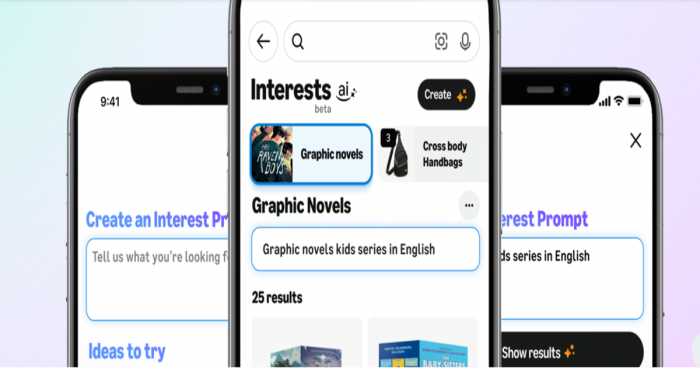With a new wave of AI-powered assistants, Amazon is speeding up its generative AI approach all over its company, from e-commerce to healthcare. Early 2025 saw the business start trialling two key tools: a medical advice chatbot called Health AI and a conversational shopping assistant named Interests AI.
These tools reflect CEO Andy Jassy’s internal directive to integrate AI across Amazon’s retail, cloud, device, and healthcare ecosystems.
With this next-generation technology, let's go through how Amazon is transforming wellness and digital commerce.
Interests AI: Shopping with Conversations, Not Keywords
Amazon’s Interests AI is currently being tested with select users in the U.S. It encourages customers to use natural language like "gifts for a 5-year-old who loves outer space" or "low-carb snacks for work. " The AI then surfaces selected items by transforming these free-ended phrases into meaningful search criteria.

Whereas conventional search relies on precise keywords, Interests AI employs large language models (LLMs) to interpret user intent. This isn’t Amazon’s first AI foray into retail. The company has already deployed:
- Rufus, a chatbot embedded in search for product Q&A
- AI-generated seller content, including titles and descriptions
- Custom shopping guides, tailored by machine learning
Amazon is transforming its whole site into a conversation-driven marketplace with Interest AI.
Nevertheless, conversational AI is expanding into your medicine cupboard rather than stopping at business.
Health AI: Generative AI Meets Consumer Wellness
In parallel, Amazon is testing Health AI, a wellness-oriented chatbot meant to help consumers access over-the-counter treatments, daily medical questions, and clinical facilities. Consider: "How do I relieve flu symptoms? " or "What should I take for a painful throat? "
Usually, "clinically verified" refers to the fact that the material has been evaluated by U.S.-licensed doctors in health AI reactions. It also directs users to Amazon Pharmacy and One Medical, Amazon’s primary care provider, acquired for $3.9B in 2022.
Rufus is designed to address health-specific vocabulary and use cases, unlike Health AI. It even provides care recommendations based on symptoms, although it stops short of giving tailored diagnoses, thus staying in line with medical laws.
Running on Amazon Bedrock, an AWS platform that fuels generative AI with Amazon's models and third-party ones like Anthropic's Claude, the assistant is the convergence between these assistants is one element of a larger project: the next evolution of Alexa..
Alexa+: Amazon’s Next-Gen Agent
Amazon just unveiled Alexa+, the next iteration of its digital assistant, including generative artificial intelligence features. Scheduled for late 2025, Alexa+ will serve as an artificial intelligence agent able to take sophisticated operations free of ongoing user input.
Alexa+ could use Health AI if someone inquires about controlling cold symptoms. Their shopping for exercise equipment might have Interests in AI or Rufus. It's a modular, model-aware approach to Amazon's increasing collection of AI tools into one smooth assistant, according to The Verge.
Jassy states that Amazon is already testing more than 1,000 generative AI systems all around its operation. These instruments are central to Amazon's plan of retaining consumers within its environment rather than outsourcing to OpenAI, Google, or Apple, not just ancillary projects.
But what does all of this imply for Amazon's future and its power over our shopping, searching, and wellness maintenance?
Final Thoughts: Amazon’s Generative AI Ecosystem is Taking Shape
Amazon is including AI assistants right into its platform, stitching not just catching up in the AI race. Interests AI is changing the way people search. Medical search is poised to be advanced by Health AI as it adds value. Furthermore, Alexa+ is developing an intelligent agent that draws on its entire AI pile to cater to consumers globally.
These are basic movements, not experiments. And they propose that Amazon's generative AI goals revolve not only around competing in search or voice assistants but also around creating a closely linked environment where AI serves as the default interface for everything from purchasing to self-care.
Post Comment
Be the first to post comment!
Related Articles

Netreo: IT Monitoring and Automation Solution
Mar 29, 2025
Is Quantum AI the Next Tech Frontier?
Mar 28, 2025
What are Pre-Built Integration Solutions?
Mar 28, 2025
